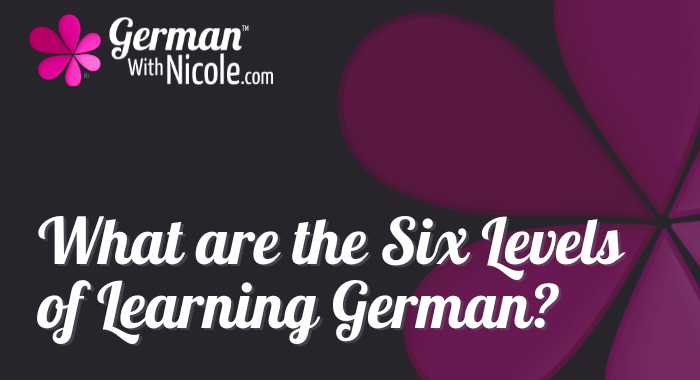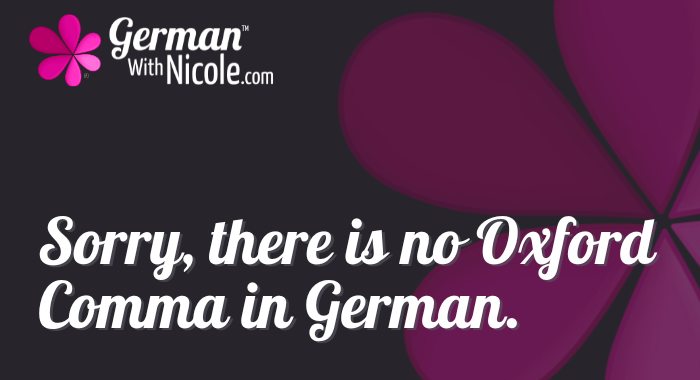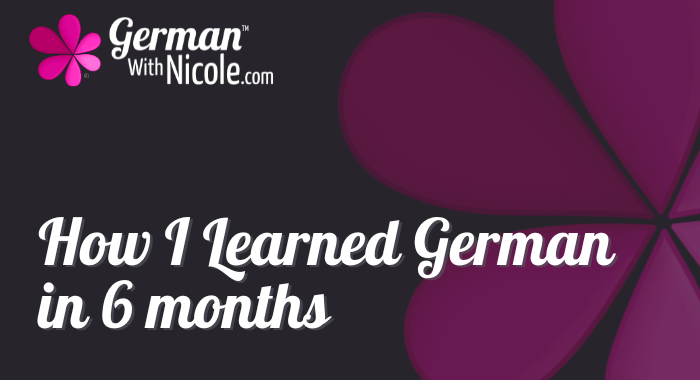das Blog
A2
5 A2 German Story Books for German Learners
Finding interesting story books for A2 German learning doesn't have to be a chore - here you can read the research I've done for you and simply purchase the books and have them delivered.
Some books are available in digital versions, which does save space, however there are distinct advantages to having a physical book, from less screen time to easily writing notes on the page.
The most important part, however, is having reading material that is at your current level of German (these are all A…
Take this Relaxing Video Trip to Bavaria
Wenn man nicht reisen kann, egal ob man zu wenig Geld hat oder es eine Pandemie gibt, kann man immer das Internet benutzen, um eine virtuelle Reise zu machen.
Es kostet nichts und man kann die gleiche Reise immer wieder machen.
Diese Woche gibt es eine Videoreise nach Bayern. Sie können verschiedene Seen sehen, eine Wiese, verschiedene Städte und vieles mehr.
Kommen Sie für 4 Minuten, 30 Sekunden mit nach Bayern.
![]()
When the time isn't right to travel, no matter if it's because money is tigh…
What are the Six Levels of Learning German?
If you've seen the combinations A1, B2 or C1 on your German books but you don't know or understand what they mean, this post is for you!
There are six total combinations of letters and numbers: A1, A2, B1, B2, C1 and C2. These are simply guidelines for figuring out where you are in the German learning process.
The name for this straightforward scale is the Common European Framework of Reference for Languages or the CEFR.
Why the CEFR is so helpful
This scale is so clear, so helpful for Germa…
What Are the Six Parts of Learning German?
Ask any new German learner and they will say German has a million parts and a gazillion words and then you can add the words together to makes new words and...
Stop!
There are only six parts to learning German.
No one part is more important than the other, either, as they are all part of the same machine, if you will.
Think of it like a car.
Does a car function well if part of it is missing or broken? Not usually!
A couple of weeks ago my car battery died (I'll spare you the details becaus…
Practice a Tongue Twister in German
der Zungenbrecher = tongue twister
Heute können Sie einen Zungenbrecher üben! Hier können Sie das PDF herunterladen:
Dann schauen Sie das Video. Ich helfe Ihnen dabei, das /ts/ aussprechen zu können und den Zungenbrecher zu lernen. Viel Spaß dabei!
*
auf Englisch:
Today you can practice a tongue twister! You can download the PDF here:
And then watch the video. In the video I'll help you correctly pronounce the /ts/ sound and to learn the tongue twister. Ha…
Sorry, There is no Oxford Comma in German.
Discussions begin, lawyers are called, and lawsuits are filed. All of it is about a comma. (See what I did there?)
The Oxford comma is so important to people that spouses actually have discussions about it. They've talked about everything like where to live, how to manage their finances, and how many kids to have, but years later they find out only one of them uses the Oxford comma. [Cut dramatic music.] It's like now the real stuff of marriage has come to the forefront:
to use the Oxford comm…
How to Pronounce the Ach-Laut in German
The long-awaited Ach-Laut video is here! Hurra!
The "Ach-Laut" means the "ach sound" and it is the airy, throaty sound you hear in the words "ach" and "machen."
Phonetically, this sound is written as /X/ and to that we say "ach." In this video I've broken down for you:
1. What the sound /X/ is and what it isn't.
2. How to feel where it takes place and
3. How to practice the sound, first slowly and then speeding it up step-by-step.
The words we concentrate on in this video are Ach, Bach, Sa…
How I Learned German in 6 Months
There isn't much of a secret to language learning because it's all about working with the language as much as possible over a length of time. However I can give you tips on how I learned to speak German fluently (and I mean--I could say anything I wanted or needed to say) within about 6 months. Konjunktiv II? Kein Thema. Polite discourse? Absolut! Telling someone off? That, too.
Don't get me wrong--learning German in 6 months was really tough. I started at an A2 level (the second-lowest level) …
Fünfzehn Synonyme für Geld
Für Geld gibt es im Deutschen gaaanz viele Wörter. Wie viele kennen Sie schon?
There are sooo many words for "Geld" (Money) in German. How many do you know already?
Nehmen Sie sich eine Minute und schreiben Sie so viele Wörter für Geld, die Sie kennen. Mit diesen drei können Sie anfangen:
Geld, Cash, Kohle ...
Also, hier gibt's einige, sowie eine kurze Erklärung zu den jeweiligen Vokabeln.
Here are a few synonyms, as well as a short explanation to each of these vocabulary words.
Viel oder viele?
"Viel" oder "Viele"? Gute Frage!
It depends on whether or not you're speaking about something that can be counted. For example:
viel Zeit - lots of time. Time in general cannot be counted. (You can count hours, but not time itself.)
viele Menschen - many people. People can be counted.
Erfolg (success) is another example of something that cannot be counted. Certain things, yes, like finishing a degree or obtaining your driver's license, can be counted, sure, however they are very specific eve…
Categories
- A1 (69)
- A2 (54)
- B1 (46)
- B2 (23)
- C1 (22)
- Deutsch lernen (80)
- Einkaufen (15)
- Essen (12)
- Grammatik (23)
- Hören (14)
- Landeskunde und Kultur (50)
- Lesen (11)
- Musik (5)
- Nachrichten (4)
- Podcast (64)
- Pronunciation (3)
- Schreiben (3)
- Schwäbisch (4)
- Spiele und Spaß (Games and Fun) (12)
- Sprechen (13)
- Vokabeln (39)
- Video (11)
Would you like to hear about future German classes with Frau Warner?
With the E-Post, you'll receive information on German class registration and goings-on in German classes, all written by Frau Warner. You'll receive an email on Tuesdays, plus an extra email or two when class registration opens or there's something new.









